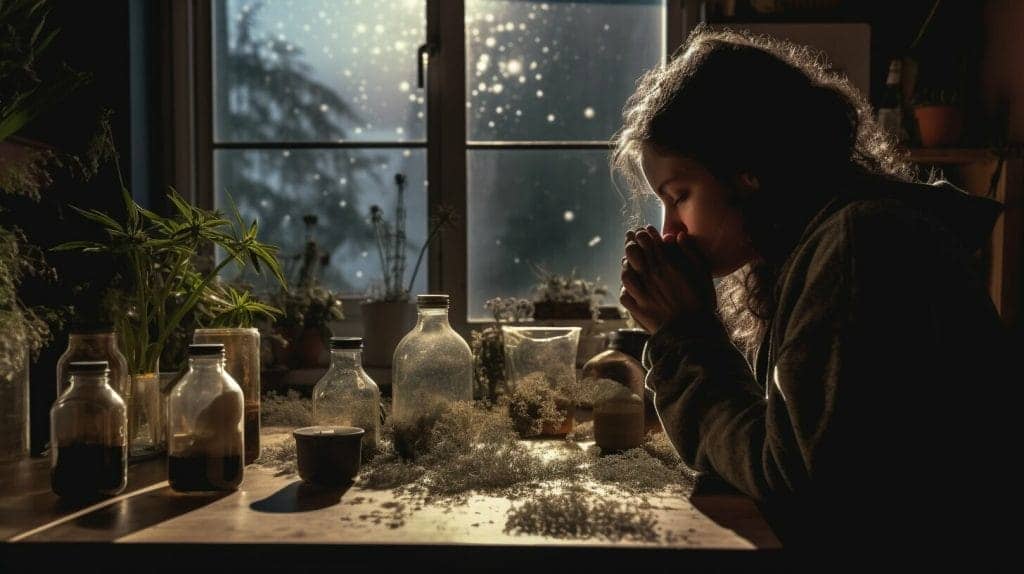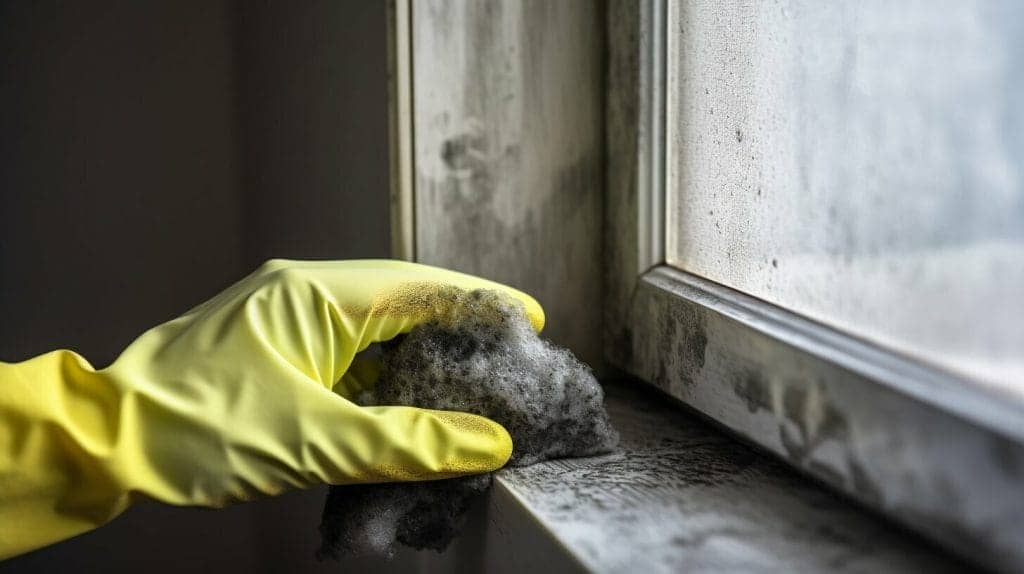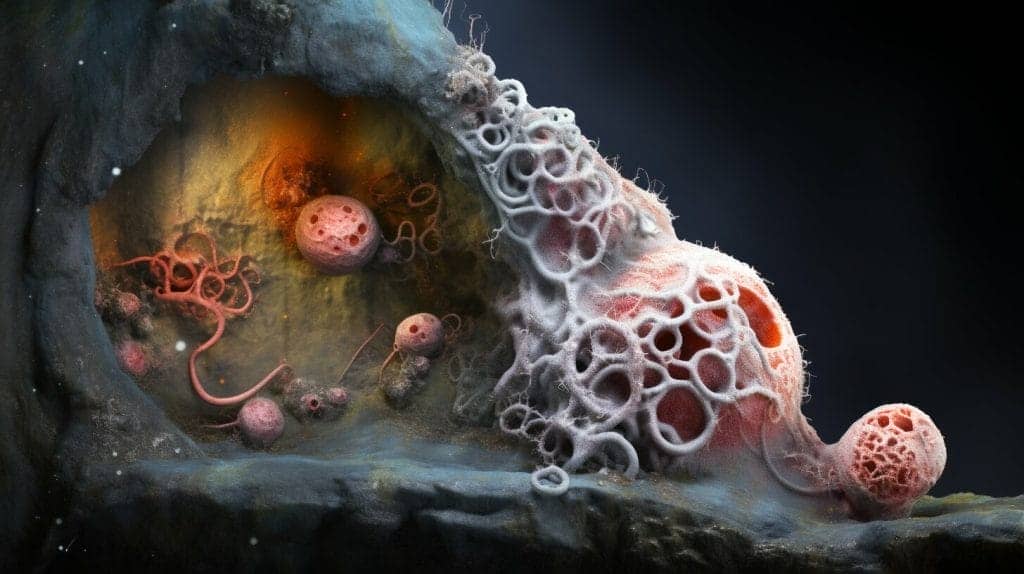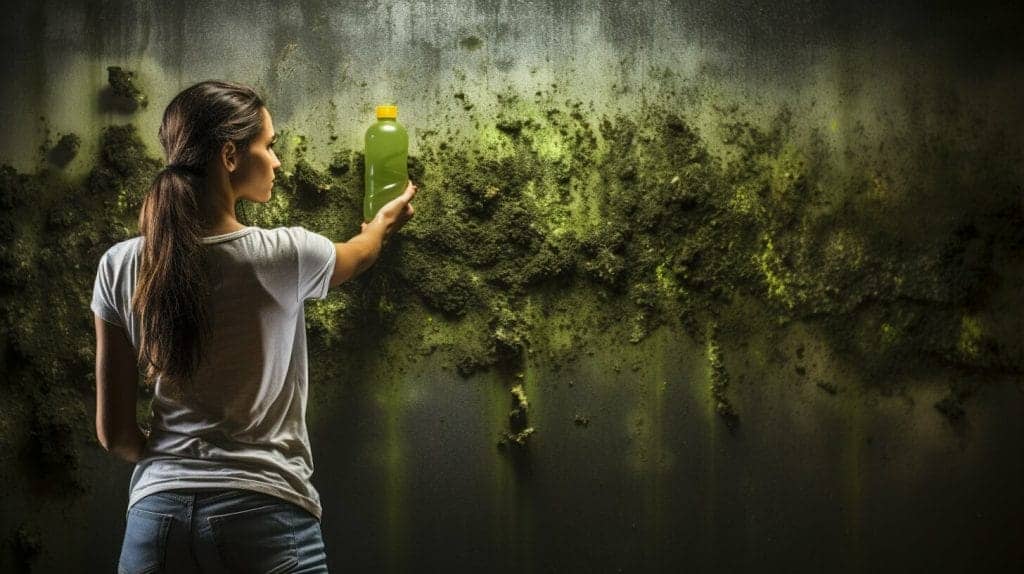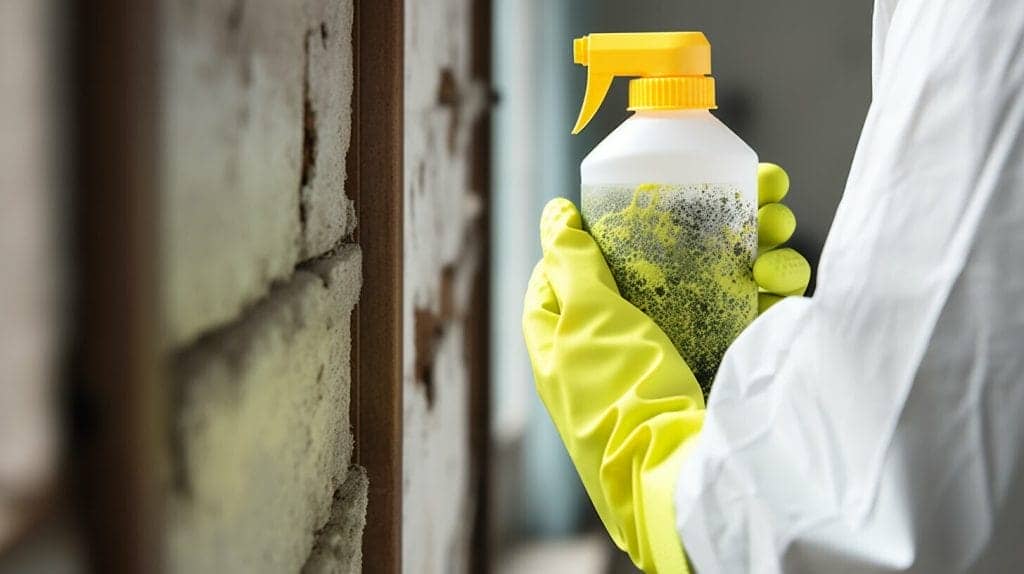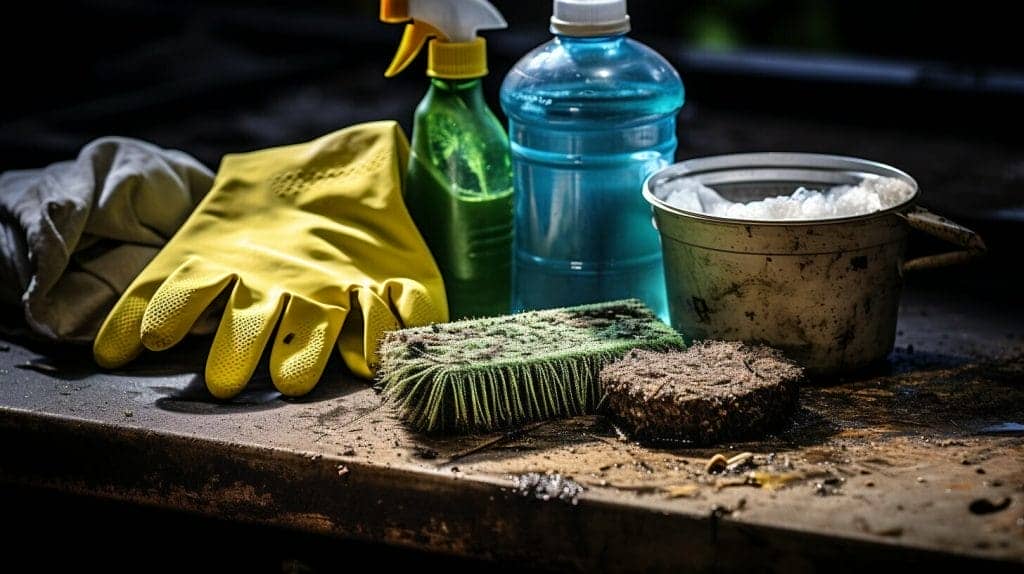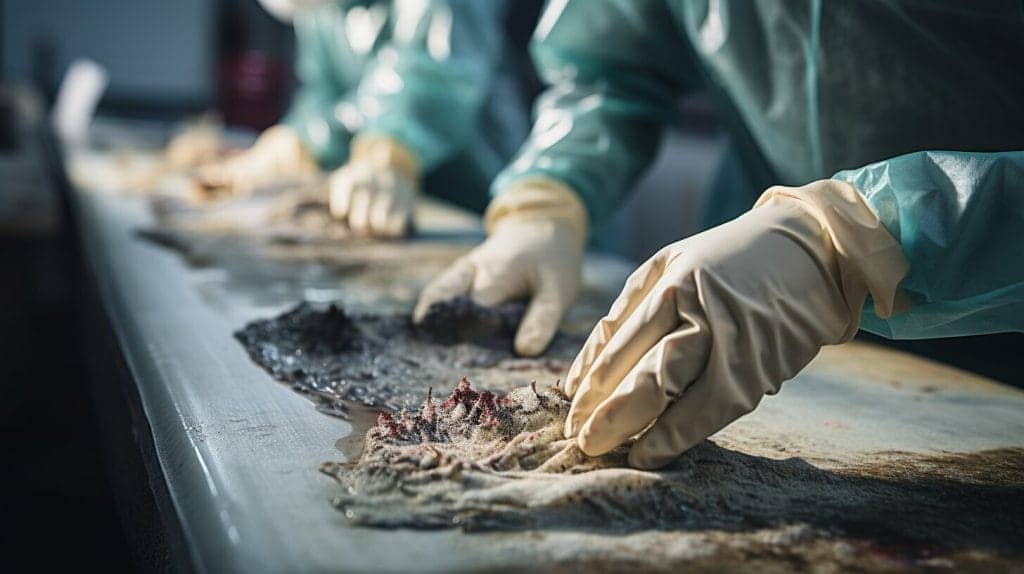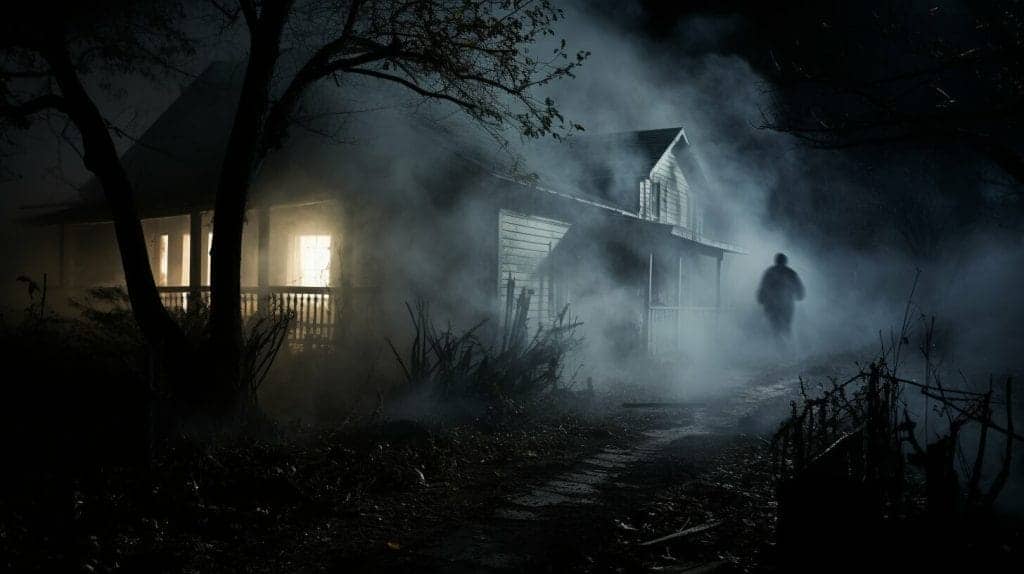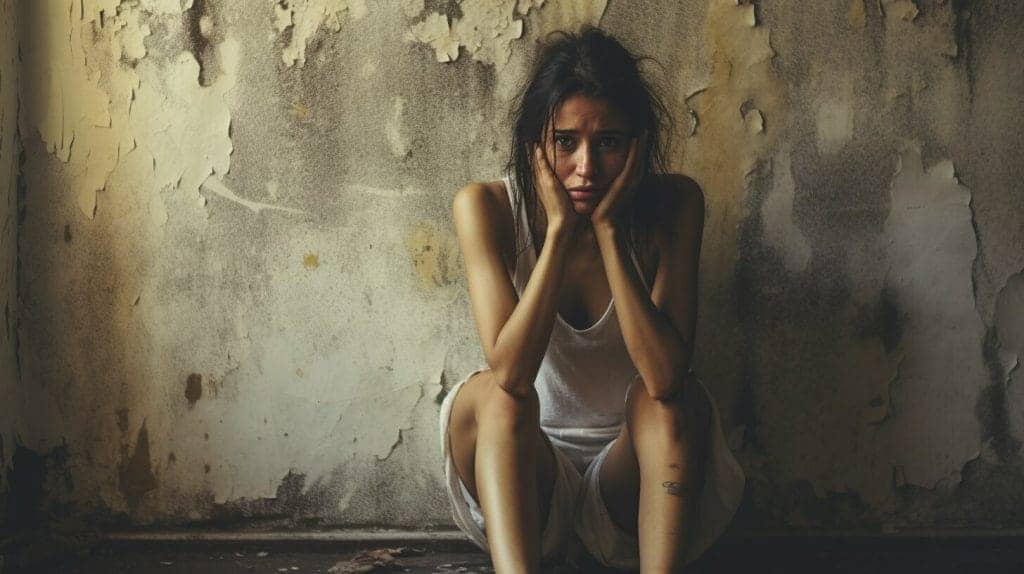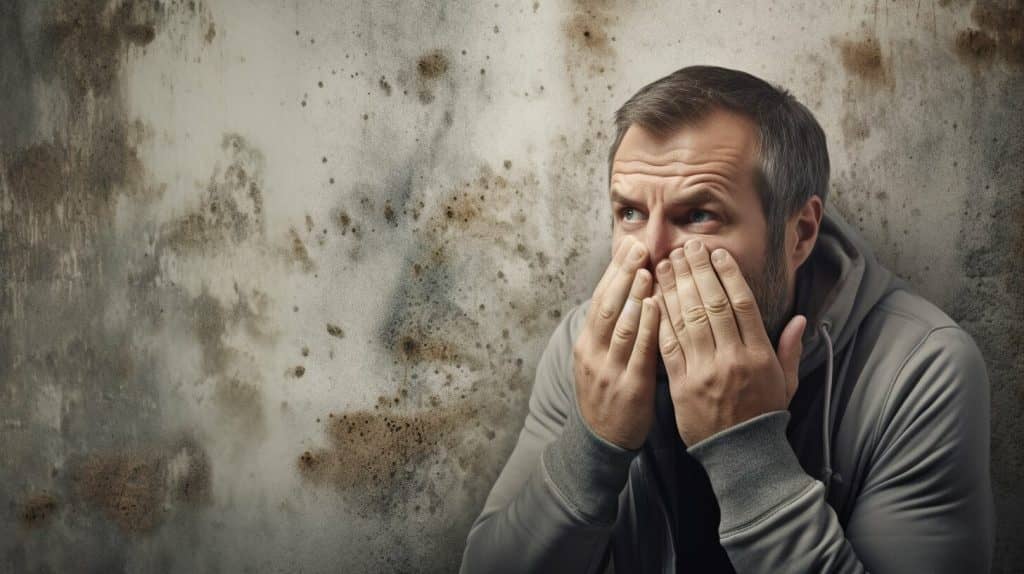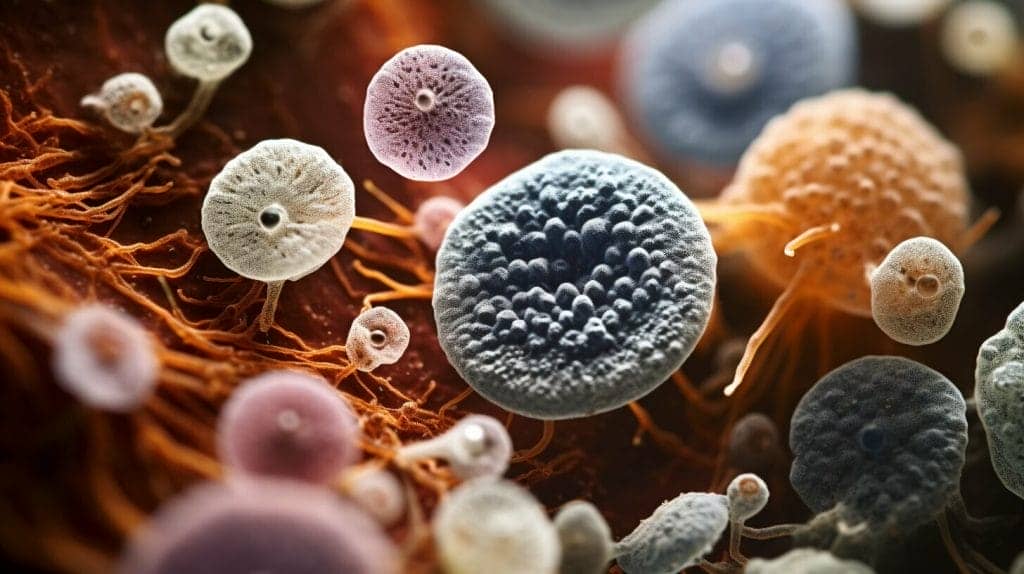Mold poisoning can cause severe health complications for those exposed to it for prolonged periods. Symptoms of mold poisoning include respiratory problems, headaches, and skin irritation, among others. Treatment for mold poisoning depends on the severity of the symptoms and the individual’s medical history. In this section, we will explore how to treat mold poisoning, including available remedies and precautions to help prevent further contamination.
Understanding Mold Poisoning
Mold poisoning occurs when an individual inhales or ingests mold spores. Mold is a type of fungus that grows in damp and moist environments and can be found both indoors and outdoors. There are many different types of mold, but the most common types include Aspergillus, Penicillium, and Stachybotrys chartarum (also known as black mold).
Types of Mold Poisoning
There are several types of mold poisoning, including:
- Allergic reactions to mold
- Respiratory infections caused by mold
- Toxic reactions to mold
Individuals who have a weakened immune system or respiratory problems are more susceptible to mold poisoning.
Symptoms of Mold Poisoning
The symptoms of mold poisoning can vary depending on the severity of exposure and the individual’s sensitivity to mold. Common symptoms of mold poisoning include:
- Coughing
- Wheezing
- Nasal congestion
- Sneezing
- Eye irritation
- Skin irritation
- Headache
- Dizziness
- Fatigue
- Mood swings
- Anxiety
- Depression
- Memory loss
- Difficulty concentrating
Individuals who experience these symptoms should seek medical attention immediately.
Natural Remedies for Mold Poisoning
There are several natural remedies that can be used to alleviate the symptoms of mold poisoning. These remedies include:
- Drinking plenty of water to flush out toxins from the body
- Using an air purifier to remove mold spores from the air
- Using essential oils like tea tree oil or eucalyptus oil to kill mold and reduce inflammation
- Using baking soda and vinegar to clean moldy surfaces
- Eating anti-inflammatory foods like turmeric and ginger
While these remedies may provide temporary relief, they are not a substitute for medical treatment. Individuals who have been exposed to mold should seek medical attention immediately.
Common Symptoms of Mold Poisoning
Mold poisoning, also known as mold toxicity, occurs when an individual is exposed to mold for a prolonged period. The symptoms of mold poisoning can range from mild to severe, depending on the extent of exposure and the type of mold in question. The following are the most common symptoms of mold poisoning:
| Physical Symptoms | Psychological Symptoms |
|---|---|
|
|
If you experience any of these symptoms, it is important to seek medical attention immediately. Without proper treatment, prolonged mold exposure can lead to serious health complications, such as respiratory and neurological problems.
Medical Treatment for Mold Poisoning
Mold poisoning, also known as mold toxicity, can cause a range of health complications that require medical attention. If you suspect you or someone you know has been exposed to mold, see a healthcare professional immediately for proper diagnosis and treatment. Here are some of the medical treatment options available for mold poisoning:
| Treatment | Description |
|---|---|
| Antifungal medication | Prescription medication to treat fungal infections caused by mold exposure. The medication can be in the form of oral tablets, nasal sprays, or topical creams. |
| Intravenous (IV) therapy | IV therapy involves the administration of medication through a vein. This method is used when the patient has a severe reaction to mold exposure and requires immediate medical treatment. |
| Oxygen therapy | Oxygen therapy can help patients with respiratory issues caused by mold exposure. This treatment involves breathing in pure oxygen through a mask or nasal cannula. |
| Allergy shots | Allergy shots are given to individuals who have developed an allergy to mold. The shots can help reduce the severity of the allergic reaction and prevent future mold allergies. |
It’s important to note that medical treatment for mold poisoning may not completely eliminate all symptoms. Therefore, it’s recommended to also implement other treatment options, such as natural remedies and lifestyle changes, to aid in the recovery process.
Holistic Remedies for Mold Poisoning
If you prefer to use natural remedies over traditional medical treatments, there are several options available for treating mold poisoning. While these remedies may not completely cure mold poisoning, they can help alleviate symptoms and boost your immune system.
1. Vitamin C
Vitamin C is a powerful antioxidant and immune booster that can help your body fight off the effects of mold poisoning. It also helps reduce inflammation and repair damaged tissues in the body. You can take vitamin C supplements or increase your intake of vitamin C-rich foods like oranges, strawberries, broccoli, and bell peppers.
2. Essential oils
Essential oils like tea tree oil, oregano oil, and grapefruit seed extract have antifungal properties that can help kill mold and prevent further growth. You can add a few drops of these oils to a diffuser or mix them with a carrier oil like coconut oil and apply them to the affected areas of your skin.
3. Activated charcoal
Activated charcoal is a natural detoxifier that can help remove toxins and impurities from your body. It can also help alleviate symptoms of mold poisoning like headaches and fatigue. You can take activated charcoal supplements or mix it with water and drink it.
4. Bentonite clay
Bentonite clay is a natural clay that can help remove toxins and impurities from your body. It can also help alleviate symptoms of mold poisoning like nausea and diarrhea. You can mix bentonite clay with water and drink it or apply it directly to the affected areas of your skin.
While these natural remedies can help alleviate symptoms of mold poisoning, it’s important to note that they should not be used as a substitute for medical treatment. If you suspect that you have been exposed to mold, seek medical attention immediately.
Prevention of Mold Poisoning
Mold poisoning can be prevented by taking the necessary steps to prevent mold growth in homes, workplaces, and other environments where people spend significant amounts of time. Here are some ways to prevent mold poisoning:
-
Regularly inspect your home for signs of mold growth, such as damp odors, water stains, and discoloration on walls and ceilings.
-
Keep the humidity levels in your home below 50% to prevent mold growth. Use a dehumidifier if necessary.
-
Ensure proper ventilation in bathrooms, kitchens, and other areas that are prone to moisture buildup.
-
Fix leaks and water damage immediately to prevent mold growth.
-
Clean and dry any areas where water has accumulated within 24-48 hours to prevent mold growth.
-
Avoid placing carpeting in areas that are prone to moisture buildup, such as basements and bathrooms.
-
Regularly clean and maintain air conditioning systems, humidifiers, and other appliances that produce moisture.
Safety Precautions for Mold Poisoning
When dealing with mold poisoning, it is important to take the necessary safety precautions to prevent further contamination and ensure the safety of the affected individual. Here are some safety measures you can take:
- Wear protective clothing such as gloves, goggles, and respiratory masks to avoid exposure to mold spores.
- Ensure adequate ventilation in the affected area by opening windows and doors, or using fans and dehumidifiers to improve air circulation and reduce humidity levels.
- Seal off the affected area to prevent the spread of mold spores to other parts of the home or workplace.
- Dispose of any contaminated materials such as carpets, furniture, or wallpaper that cannot be cleaned or salvaged. Wrap the contaminated materials in plastic bags and dispose of them in a properly labeled hazardous waste container.
- Clean and disinfect any surfaces that have been affected by mold using a solution of water and detergent or a specialized mold cleaner. Dry the surfaces thoroughly afterwards to prevent further mold growth.
When to Seek Professional Help
If the mold infestation is severe or if you or someone in your household is experiencing severe symptoms of mold poisoning, it is important to seek professional help. A certified mold inspector can help identify the source and extent of the mold problem, while a professional mold remediation company can safely and effectively remove the mold and prevent further contamination.
Identifying Mold in Your Home
Mold is a type of fungus that grows in damp and humid areas. It can be found in various places in your home, such as the kitchen, bathroom, and basement. Identifying mold growth in your home is crucial in preventing mold poisoning and other health complications.
Methods for Identifying Mold
There are different methods for identifying mold growth in your home:
| Method | Description |
|---|---|
| Visible Inspection | Check areas that are prone to moisture, such as the walls, ceilings, and floors, for any visible signs of mold growth. |
| Mold Testing | Professional mold testing can be done to detect the presence of mold in your home. Samples are taken from the air or surfaces and sent to a laboratory for analysis. |
| Odor Detection | Mold has a distinct musty smell. If you notice an unusual odor in your home, it could be a sign of mold growth. |
Common Signs of Mold Growth
Aside from visible mold growth and the musty smell, there are other signs that suggest mold growth in your home:
- Water stains on walls or ceilings
- Warping or bulging in walls or floors
- Peeling or bubbling paint or wallpaper
- Increase in allergic reactions, such as sneezing, coughing, and watery eyes
If you suspect that your home has mold growth, it is best to consult a professional mold inspector for proper diagnosis and treatment.
How to Remove Mold from Your Home
Mold grows in damp and wet areas. If you discover mold in your home, it is important to remove it as soon as possible to prevent further spread and exposure to mold spores. Here are some methods for removing mold from your home:
- Identify the source: First, identify the source of the mold growth. Check for leaks or moisture buildup in areas such as bathrooms or near windows.
- Protect yourself: Wear protective gear such as gloves, masks, and goggles to avoid exposure to mold spores.
- Dry the area: Use a dehumidifier or a fan to dry the area before removing the mold. This prevents further growth.
- Remove the mold: Use a solution of water and detergent to scrub the mold off hard surfaces such as walls, tiles, and floors. For porous materials such as drywall or carpeting, it may be best to discard them as it is difficult to remove mold from these materials.
- Dispose of contaminated materials: Seal all contaminated materials in a plastic bag before disposing of them. This prevents the spread of mold spores.
- Dispose of cleaning materials: After cleaning, dispose of all cleaning materials such as rags and sponges used to clean up the mold spores. Do not reuse them.
It is important to note that if you have a large mold growth or if the affected area is larger than 10 square feet, it is best to call in a professional mold removal service.
Mold Poisoning and Children
Children are particularly vulnerable to mold poisoning. Their immune systems are not fully developed, and they spend more time indoors than adults, making them more susceptible to mold exposure. Children who live in homes with high levels of mold are more likely to experience respiratory issues, allergies, and asthma.
Symptoms of Mold Poisoning in Children
The symptoms of mold poisoning in children are similar to those in adults. However, children may experience more severe symptoms because of their developing respiratory and immune systems. Common symptoms of mold poisoning in children include:
- Coughing
- Sneezing
- Nasal congestion
- Runny nose
- Wheezing
- Shortness of breath
- Skin rash
- Fever
- Headaches
- Fatigue
- Irritability
- Anxiety
- Difficulty concentrating
Treatment for Mold Poisoning in Children
If you suspect your child has been exposed to mold, it’s important to take them to a doctor as soon as possible. The doctor may perform a physical examination and order tests, such as blood tests or allergy tests, to determine if your child has been exposed to mold.
The treatment for mold poisoning in children depends on the severity of their symptoms. In mild cases, the doctor may recommend over-the-counter medications to reduce symptoms. In more severe cases, the doctor may prescribe prescription medications or refer your child to a specialist.
In addition to medical treatment, it’s important to eliminate mold from your home to reduce your child’s exposure to it. This may involve hiring a professional mold removal company or using over-the-counter products to clean mold from surfaces in your home.
Mold Poisoning and Pregnancy
Mold exposure during pregnancy can have adverse effects on both the mother and the developing fetus. Pregnant women who are exposed to mold are at risk of adverse birth outcomes such as preterm birth, low birth weight, and stillbirths.
How does Mold Affect Pregnancy?
The presence of mold can increase a pregnant woman’s risk of developing respiratory problems, such as asthma and allergies. Exposure to certain types of mold, such as black mold, can also cause severe health problems for both the mother and the baby.
Additionally, mold can produce mycotoxins, which can cause birth defects and developmental delays in newborns. Mycotoxins can also interfere with the normal functioning of the placenta, potentially leading to miscarriages.
What are the Symptoms of Mold Poisoning during Pregnancy?
The symptoms of mold poisoning during pregnancy are similar to those experienced by non-pregnant individuals. These symptoms include headaches, respiratory problems, skin irritation, and fatigue. Pregnant women who experience these symptoms should seek medical attention immediately.
Treatment for Mold Poisoning during Pregnancy
If you suspect that you or your baby has been exposed to mold, it is important to seek medical attention immediately. Your doctor may prescribe medications to alleviate your symptoms or recommend natural remedies. In severe cases, hospitalization may be necessary.
Pregnant women should also take measures to minimize their exposure to mold. This includes keeping their home dry and well-ventilated, cleaning regularly, and avoiding areas with known mold growth.
Mold Poisoning and Pets
Mold poisoning doesn’t only affect humans; it can also harm pets. Cats and dogs are particularly susceptible to mold exposure due to their curious and exploratory nature. Pets that live in homes with moldy environments or have had a history of mold exposure are at high risk of developing mold poisoning.
The symptoms of mold poisoning in pets are similar to those in humans and can include respiratory difficulties, lethargy, and skin rashes. Pets may also display excessive scratching or licking as part of their response to mold exposure.
If you suspect that your pet has been exposed to mold, take them to the veterinarian for a thorough examination. The veterinarian will conduct tests to determine the severity of the exposure and prescribe treatment accordingly.
In severe cases, pets may need hospitalization and require intravenous medication. In less severe cases, the vet may prescribe medications to manage symptoms such as antihistamines or steroid therapies. Remove pets from an environment suspected of having mold and continue medical treatment.
It is essential to keep pets away from mold-prone environments and take preventive measures such as regular cleaning and ventilation, not only for human health but also for the well-being of pets.
Mold Poisoning and Medical Conditions
Individuals with pre-existing medical conditions are more vulnerable to the harmful effects of mold exposure. Mold can exacerbate their existing medical conditions and cause additional health complications.
Individuals with asthma, allergies, weakened immune systems, and chronic obstructive pulmonary disease (COPD) are particularly susceptible to mold toxicity. Exposure to mold can trigger asthma attacks, allergic reactions, and respiratory problems in these individuals.
If you have a pre-existing medical condition, it’s crucial to take extra precautions to avoid mold exposure. Hiring a professional to inspect and remove mold from your home or workplace can significantly reduce your risk of mold poisoning.
If you suspect that you have been exposed to mold and are experiencing symptoms, it’s essential to seek medical attention immediately. A healthcare professional can diagnose mold poisoning and provide you with the appropriate medical treatment.
Mold Poisoning and Legal Remedies
Mold poisoning can have far-reaching effects on your health and financial stability. If you have been exposed to mold, either at home or in the workplace, you may have legal remedies available to you.
If you believe that your mold exposure was caused by someone else’s negligence, you should consider seeking legal advice. An attorney experienced in mold litigation can help you assess your situation and determine if you have a viable case.
The following legal remedies may be available to you if you have been exposed to mold:
| Legal Remedy | Description |
|---|---|
| Lawsuits | If your mold exposure was caused by someone else’s negligence, you may be able to file a lawsuit against them. This could include a landlord, employer, or contractor. |
| Insurance Claims | If you have homeowners or renters insurance, you may be able to file a claim for mold damage. This could cover the cost of mold removal and any related medical expenses. |
| Workers’ Compensation | If you were exposed to mold in the workplace and developed an illness as a result, you may be able to file a workers’ compensation claim. |
It is important to note that the legal process can be complex and time-consuming, and there is no guarantee of a successful outcome. However, if you have suffered from mold exposure, it is worth considering your legal options to ensure that you are fairly compensated for your losses.
Frequently Asked Questions (FAQs) on Mold Poisoning
Here are some of the most frequently asked questions regarding mold poisoning:
What are the symptoms of mold poisoning?
The symptoms of mold poisoning include respiratory problems, headaches, skin irritation, fatigue, and neurological issues. These symptoms can vary depending on the type of mold and the individual’s sensitivity to it.
How do you treat mold poisoning?
The treatment for mold poisoning involves removing the source of the mold and treating the symptoms. This can include medication, therapy, and natural remedies. It’s important to consult a doctor if you suspect mold poisoning.
Can mold poisoning be fatal?
In rare cases, prolonged exposure to toxic mold can lead to severe health complications and even death. It’s important to address any mold issues as soon as possible and seek medical attention if symptoms persist.
What are some natural remedies for mold poisoning?
Natural remedies for mold poisoning include essential oils, probiotics, and supplements such as Vitamin C and E. These remedies can help alleviate symptoms and boost the immune system.
How can I prevent mold growth in my home?
To prevent mold growth in your home, make sure to keep the humidity levels low, fix any leaks or water damage promptly, and ensure proper ventilation in bathrooms and kitchens. Regular cleaning and maintenance can also help prevent mold growth.
What legal remedies are available for mold poisoning victims?
Legal remedies for mold poisoning victims can include compensation for medical expenses, lost wages, and damages to property. It’s important to consult a lawyer if you believe you have been exposed to mold and suffered health complications as a result.
Can pets be affected by mold poisoning?
Yes, pets can be affected by mold poisoning. The symptoms can include respiratory problems, skin irritation, and neurological issues. It’s important to address any mold issues in your home to protect both you and your pets.
Is black mold more dangerous than other types of mold?
Black mold, also known as Stachybotrys chartarum, is a toxic mold that can cause severe health complications. However, all types of mold can be harmful to humans and pets, and should be addressed promptly.
Dr. Francisco Contreras, MD is a renowned integrative medical physician with over 20 years of dedicated experience in the field of integrative medicine. As the Medical Director of the Oasis of Hope Hospital in Tijuana, Mexico, he has pioneered innovative treatments and integrative approaches that have been recognized globally for the treatment of cancer, Lyme Disease, Mold Toxicity, and chronic disease using alternative treatment modalities. Dr. Contreras holds a medical degree from the Autonomous University of Mexico in Toluca, and speciality in surgical oncology from the University of Vienna in Austria.
Under his visionary leadership, the Oasis of Hope Hospital has emerged as a leading institution, renowned for its innovative treatments and patient-centric approach for treating cancer, Lyme Disease, Mold Toxicity, Long-Haul COVID, and chronic disease. The hospital, under Dr. Contreras's guidance, has successfully treated thousands of patients, many of whom traveled from different parts of the world, seeking the unique and compassionate care the institution offers.
Dr. Contreras has contributed to numerous research papers, articles, and medical journals, solidifying his expertise in the realm of integrative medicine. His commitment to patient care and evidence-based treatments has earned him a reputation for trustworthiness and excellence. Dr. Contreras is frequently invited to speak at international conferences and has been featured on CNN, WMAR2 News, KGUN9 News, Tyent USA, and various others for his groundbreaking work. His dedication to the medical community and his patients is unwavering, making him a leading authority in the field.
Contreras has authored and co-authored several books concerning integrative therapy, cancer, Lyme Disease and heart disease prevention and chronic illness, including "The Art Science of Undermining Cancer", "The Art & Science of Undermining Cancer: Strategies to Slow, Control, Reverse", "Look Younger, Live Longer: 10 Steps to Reverse Aging and Live a Vibrant Life", "The Coming Cancer Cure Your Guide to effective alternative, conventional and integrative therapies", "Hope Medicine & Healing", "Health in the 21st Century: Will Doctors Survive?", "Healthy Heart: An alternative guide to a healthy heart", “The Hope of Living Cancer Free”, “Hope Of Living Long And Well: 10 Steps to look younger, feel better, live longer” “Fighting Cancer 20 Different Ways”, "50 Critical Cancer Answers: Your Personal Battle Plan for Beating Cancer", "To Beat . . . Or Not to Beat?", and “Dismantling Cancer.”

